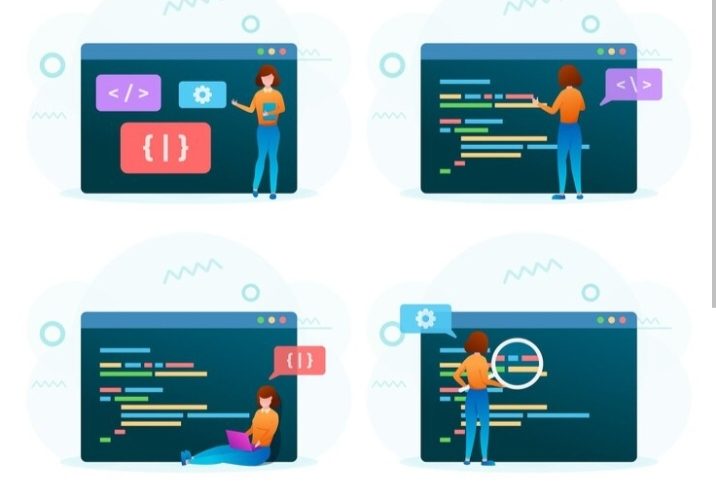Web Framework is an independent type of site, not tied to other platforms. This means that we need to build our own website from scratch using coding. Of course, it requires technical skills in the form of in-depth programming. Done by professional Web Developers. Especially for those of us who are serious about wanting to create our own software. This means having an independent platform brand.
The database storage already uses a server, no longer using hosting. So, we have totality and full rights in handling the website. Web Framework is suitable for medium to large scale businesses. Especially for companies and agencies. Moreover, for those of us who work in the media and startup or Technopreneur sectors. So, for more details, check our explanation below, guys! Check it out.
Understanding Web Framework
Web Framework is software that provides a structure and set of tools for web application development. Web Framework simplifies and speeds up the process of creating web applications. Of course, by providing basic components. Namely, those that are often used in developing these applications.
A Web Framework is a collection of libraries and rules that are designed. Aims to simplify and speed up web application development. Namely, by providing a basic structure that has been regulated and optimized.
Main Web Framework Functions
Web Framework has various main functions. Of course, which is very important for us Web Developers. So, it can be used for coding-based site development. So, here are some of its functions, including:
- Simplifies Development
Provides ready-to-use templates, components and modules. In order to reduce the burden on Web Developers.
- Setting Application Structure
Ensure the application has a structure that is consistent and maintainable.
- Increase Productivity
Reduces boilerplate code, and allows Developers to focus on business logic.
- Ensuring Security
Provides standard security mechanisms. For example, protection against CSRF, XSS and SQL Injection attacks.
- Supports Scalability
Enables applications to be developed in a way that is easy to scale and expand.
Types of Web Framework
Web Framework have various types. Of course, it is related to the type of work method and position. So, it is divided into two main categories, including:
- Front-End Framework
Used for user interface development and user interaction. Examples that are popularly used include:
- React
Developed by Facebook, it focuses on creating component-based user interfaces.
- Angular
Developed by Google, offers a complete solution. For the sake of building a single-page web application.
- Vue.js
A progressive framework that can be adopted,incrementally in web projects.
- Back End Framework
Used for server logic development, database management, and handling HTTP requests. Examples that are popularly used include:
- Django
A Python framework that focuses on development speed and ease of use.
- Ruby on Rails
A Ruby framework that emphasizes conventions, rather than configuration.
- Laravel
PHP framework that provides various features. These include routing, authentication and easy database management.
Main Web Framework Components
Web Framework has main components. Of course, as a composition of the elements in it. It has very important uses in website development. So, here are some of the main components, including:
- Routing
Set how URLs are translated into in-app actions. For example, when a user accesses a specific URL. Then, the framework will determine which controllers and methods should be called.
- Template Engine
Provides a way to generate dynamic HTML. Of course, by combining data from the server with HTML templates.
- ORM (Object-Relational Mapping)
Abstracting interactions with databases. Namely, by converting database tables into objects in code. So, it can make it easier to manipulate data without having to write SQL directly.
- Middleware
The layers that lie, between the HTTP request and the response. Allows additional handling such as authentication, logging, or caching.
Benefits of Using a Web Framework
Web Framework offers many advantages for us. Of course, for Web Developers who want to use it. Both in value and effectiveness. So, here are some of the benefits, including:
- Faster Development Time
With components, which are ready to use. So, Web Developers can focus on application-specific features rather than building from scratch.
- Consistency and Maintenance
The framework provides a clear, structured structure and best practices. Thus, making the code more consistent and easy to maintain.
- Security
Modern frameworks usually come with protections against various types of common attacks. Thus, increasing application security.
- Community and Documentation
Popular frameworks usually have large communities and complete documentation. So, it can make it easier for developers to find solutions and get help.
Example of Web Framework Implementation
The Web Framework must be implemented, with a script. Of course, in the form of coding to produce certain commands. In connection with programming, in developing a website. So, here are examples of implementation of the Web Framework, including:
- Example Implementation with Django (Python):
from django.http import HttpResponse
from django.shortcuts import render
def index(request):
return HttpResponse(“Hello, world. You’re at the polls index.”)
# urls.py
from django.urls import path
from . import views
urlpatterns = [
path(”, views.index, name=’index’),
]
- Example Implementation with Laravel (PHP):
// web.php (Routing file)
Route::get(‘/’, function () {
return view(‘welcome’);
});
// Controller
namespace App\Http\Controllers;
use Illuminate\Http\Request;
class HomeController extends Controller
{
public function index()
{
return view(‘home’);
}
}
By using the Web Framework. So, developers can focus more on creating features and application business logic. Without having to think about often recurring technical details. Of course, in web application development.
That’s the article from Us UpGes which discusses Web Framework. Relating to definition, function, types, components, advantages and examples. Of course, it is very useful for those of you who want to seriously get involved in the world of websites. Improve technical skills, in building a more professional website. Using coding, programming and UI/UX design skills. That way, we can become reliable Web Developers. OK Guys, that’s all from us and thank you.
